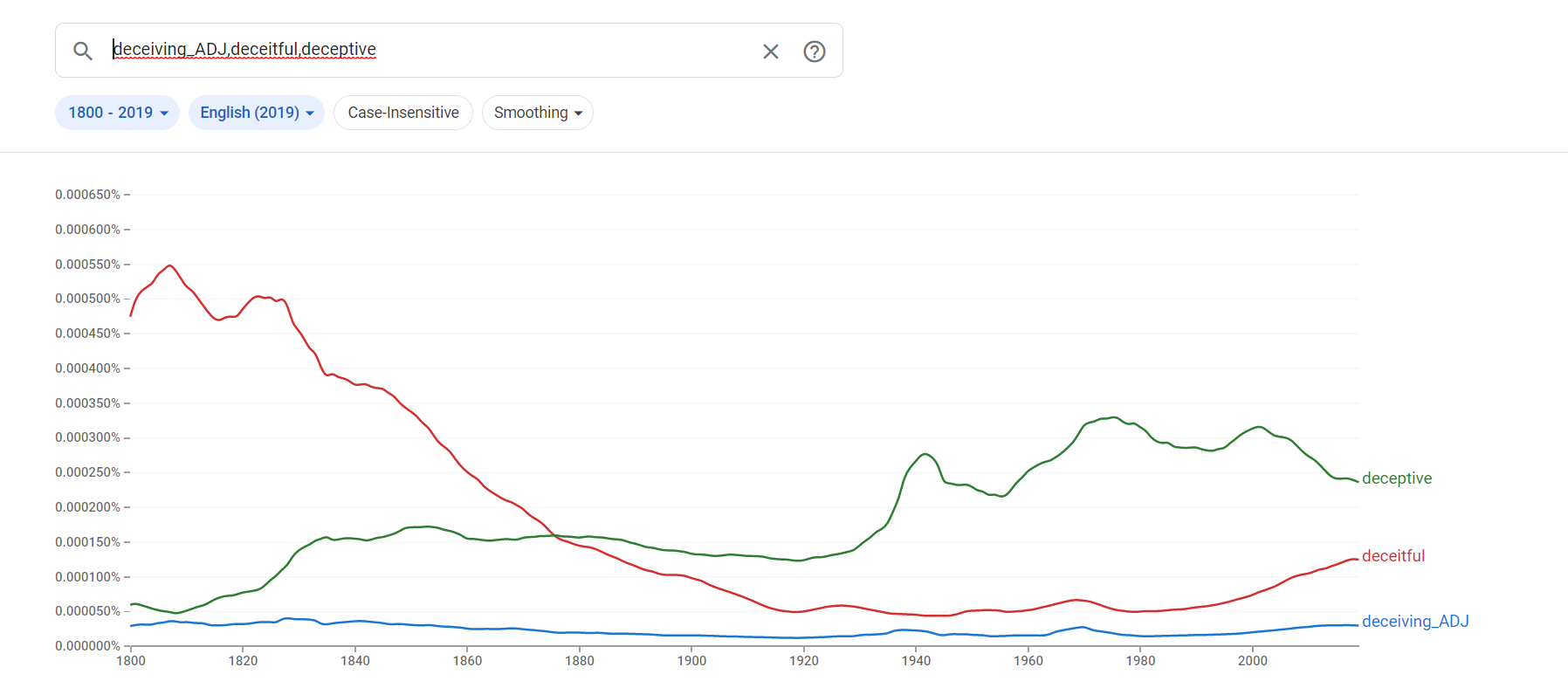Cambridge may say that deceitful and deceptive are adjectives, but it does not deny the fact that "deceiving" can be used as an adjective:
deceiving
In English, many past and present participles of verbs can be used as adjectives. Some of these examples may show the adjective use.
- Well, if they want to call it that, that is an incredibly deceiving simplification. [clearly and adjective modified by the adverb incredibly]
- We argue that the subjects misinterpret this because the information to the visual system is ambiguous and also deceiving. [clearly and adjective functioning as a predicative complement together with another adjective ambiguous]
It is true that the use of deceiving as an adjective is old, but it has rarely prevailed over deceptive and deceitful as you can see from this Ngram:
And in case you think that these results are limited because of the noun look, here is a more convincing search:

I tried other searches and I found it interesting how, as a predicative complement, deceiving is more common after the plural verb be, probably due to common expressions such as looks are deceiving, first impressions can beare deceiving, etc. But these are deceiving results, because they also include the present continuous you/they are deceiving. In the singular the other two adjectives seem to be preferred.
As for your sentence, considering everything that has been said, it may be better to say:
Gabor's looks are deceiving.
If you refer to his physical appearance, dictionaries suggest you use the plural of look. If you refer to his gaze, you can leave it in the singular, but then it may be more natural to say:
Gabor gave me a deceiving look.
